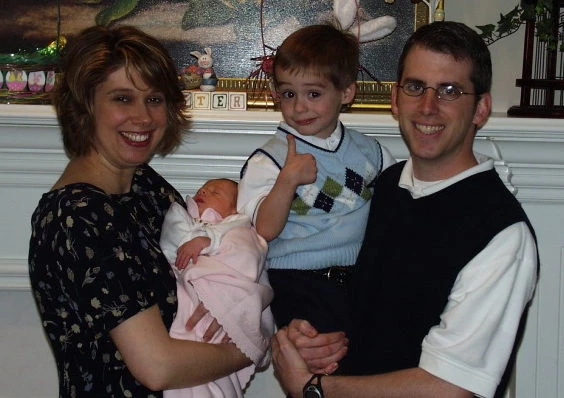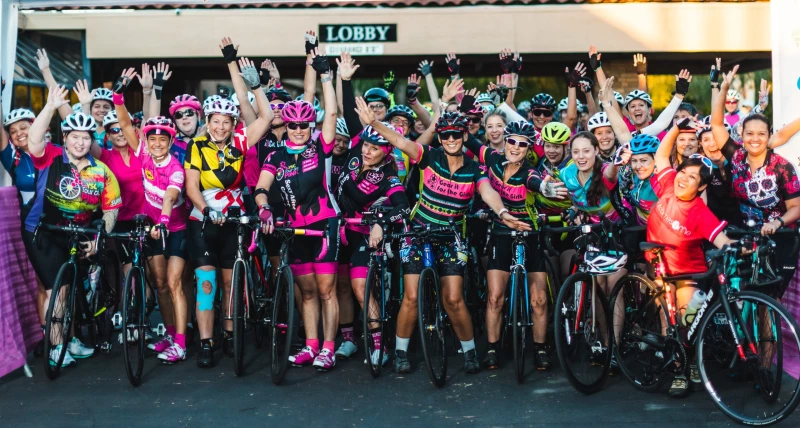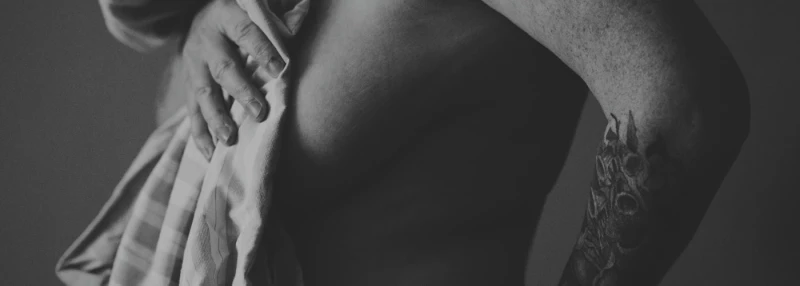My husband, Matt, and I had always planned to have at least two children. After my breast cancer diagnosis at age 27 while five months pregnant with our first child, we weren’t sure anymore. A normal pregnancy quickly changed into a high-risk one while I underwent a mastectomy and three months of chemotherapy. The day after my last treatment, our son, Parker, made his entrance into the world five weeks early, but completely healthy.
In Parker’s first year, I was so afraid of a recurrence that I missed out on some of the joy of his milestones. The further out I got from my diagnosis, the more my fears lessened. I became more confident in my body again, and Matt and I began talking about having a second child.
At my two-year (post-treatment) appointment, I asked about having a second child. My oncologist raised his brow and said, “The longer you wait, the happier I’ll be.” At the time, it was believed that women with estrogen-receptor positive cancers may be at a higher risk for dormant cancer cells to become active again because of hormone surges during pregnancy. My tumor was estrogen-receptor negative, but it was slightly positive for progesterone, which is also elevated during pregnancy.
Despite his concerns, my oncologist also shared a positive study showing that pregnancy after breast cancer can have a “healthy mother effect.” I still had unanswered questions, but I was encouraged. I had been told that surgery would not hamper my fertility, but chemotherapy might, so we weren’t even sure I would be able to get pregnant.
As I approached my three-year mark, my surgeon thought it would be fine to add to our family but Matt and I decided to wait another year. Soon, however, I realized my cycle was late. When a home test confirmed I was pregnant, I was shocked, excited and nervous. The first person I contacted was my surgeon, who was so happy for me. I felt instantly more at ease. She said that she would follow me closely during the pregnancy with visits every two months, which made me feel more confident.
In my sixteenth week of pregnancy, I felt a lump in my right breast. This couldn’t happen again? I panicked and called my surgeon. She didn’t think it felt like a cancerous tumor, but she performed an ultrasound and everything looked good. She told me to stop touching it and to come back in four weeks. It was so hard not to touch the lump. I obsessed over it. But four weeks later, the lump had disappeared. And the rest of my pregnancy went smoothly.
It was so nice to experience a normal pregnancy this time. Chasing after a toddler helped the time go by quickly. Matt and I welcomed Emma Grace into our lives in April 2003. I decided I wanted to try nursing, even if I could do it only from one side. If women can breastfeed twins, I thought, I can breastfeed a baby from one breast.
I had not had reconstruction yet, so I put Boobsie (the nickname I gave my breast form) into a nursing bra and it worked great. I breastfed Emma for six months from one breast, supplementing with formula. It was an experience I was denied with Parker, because my milk never came in. Although painful in the beginning, it was wonderful to see my breast as something beautiful again, instead of an enemy.
August is National Breastfeeding Month. You have likely heard that breastfeeding has been shown to be protective against breast cancer and beneficial for your baby. Of course, breastfeeding is not always an option and this makes you no less of a mom. This great article shares what you might expect, based on your cancer treatments and surgery.
Other helpful resources:
Learn more about fertility preservation, family planning and options after breast cancer treatment.
Can I get pregnant after breast cancer and when?
Research on pregnancy after breast cancer:
Pregnancy After Diagnosis Doesn’t Seem to Affect Recurrence Risk
Outcome of patients with pregnancy during or after breast cancer: a review of the recent literature.
Looking to help further knowledge on pregnancy during and after breast cancer?
POSITIVE Trial will capture data on pregnancy rates and outcomes on ER+ breast cancer, allowing women to take a “baby break” to go off of Tamoxifen, thus helping to determine the optimal timing for women on endocrine therapy.
Pregnancy and Cancer Registry collects information about the diagnosis and treatment of cancer in pregnant women. It also follows breast cancer survivors who have a child after cancer to assess the health of both the mother and child long-term.
Download or order a free copy of YSC’s Post Treatment Navigator, which includes a section on fertility and other topics.
Talk with other women who have had children after breast cancer online or in-person via in person.
For more about Jennifer’s story: Battling Breast Cancer While Pregnant





